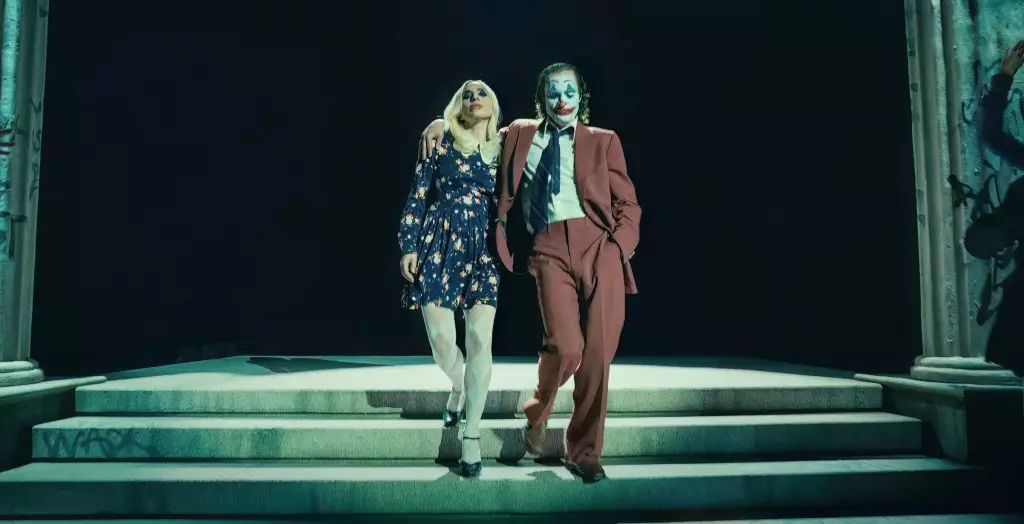As “Joker: Folie à Deux,” the highly anticipated sequel to Todd Phillips’ 2019 film, continues its run in theaters, the backlash against the film has become increasingly vocal. The criticism has gained traction not only from film critics and fans but has now reached the cast, with comedian Tim Dillon weighing in on the production in a recent podcast. His description of the film as “the worst film ever made” has not only attracted attention but also raised questions about the film’s creative choices and themes.
Dillon’s experience on set as a guard at Arkham Asylum paints a picture of confusion and disbelief regarding the narrative structure of the film. His observations suggest a stark deviation from the psychological depth and social commentary that characterized its predecessor. The original “Joker” was a profound exploration of mental illness, societal alienation, and the consequences of violence. In contrast, Dillon suggests that the sequel lacks a coherent plot, instead offering a surreal and disjointed spectacle that sacrifices narrative for flamboyant, albeit perplexing, performances by stars Joaquin Phoenix and Lady Gaga.
The Dissonance Between Expectations and Reality
Upon its release, “Joker: Folie à Deux” was expected to build on the success of the first film, which grossed over $1 billion and secured multiple Oscars. However, the sequel’s poor performance at the box office, with only $204 million earned so far, raises questions about the filmmaking choices that were made in response to the criticisms of the first film. Dillon theorizes that the creators, aware of the negative critiques surrounding “Joker,” perhaps aimed to create a film that reacts against the sentiments of their audience, leading to a tonal shift that many find unsettling.
Dillon’s candid remarks highlight a broader concern that the film industry may struggle to balance artistic expression with audience expectations. Instead of grappling with the complexities of the character’s psyche, the sequel seemingly prioritizes a whimsical and musical approach that, according to Dillon, fails to resonate even as a “hate-watch.” In an age where viewers seek films that provoke thought or evoke emotional reactions, this shift may alienate the very audience that once embraced its predecessor.
Defenders in the Shadows
Despite the mounting criticism, notable figures in the film industry have come to the sequel’s defense. Visionaries like Quentin Tarantino and video game creator Hideo Kojima have expressed belief in the artistic value of “Joker: Folie à Deux,” suggesting that it may evolve into a cult classic over time. Tarantino’s comments emphasize a perception of the film as a rebellious expression against traditional storytelling conventions in Hollywood—an audacious statement from Phillips that challenges both the industry and its audience.
This divide among critics and defenders signifies a larger conversation about art and its interpretation. Can a film that embodies chaos and disregard for conventional storytelling still hold artistic merit? Or does it ultimately succumb to the pitfalls of trying to reclaim an artistic identity plagued by external pressures and audiences demanding a return to familiar themes?
“Joker: Folie à Deux” stands as a contentious sequel that invites scrutiny into the demands of storytelling and the complexities behind creative decision-making in contemporary cinema. As discourse surrounding the film evolves, it remains to be seen whether history will favor it as an audacious departure or categorize it as a miscalculation in the annals of film history.


Leave a Reply